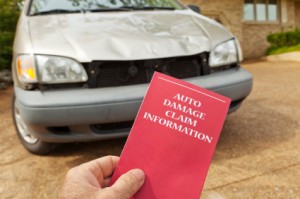Why Affordable Auto Insurance Quotes Are Based on a Good Credit Score
 If you have a good driving record but still pay a lot for your car insurance, your credit score could be a contributing factor. There are several reasons why auto insurance rates center on a good credit score.
If you have a good driving record but still pay a lot for your car insurance, your credit score could be a contributing factor. There are several reasons why auto insurance rates center on a good credit score.
Are you searching for reliable and cheap car insurance? Enter your ZIP code into the FREE box now!
Insurance providers consider several things when they determine what to charge a customer for car insurance. While your driving record, history and your vehicle are key elements, your credit score also determines your premiums.
Understanding Credit Scores
Although pretty much everyone knows he or she has a credit score, you may not be completely up to speed on the information it contains. Your credit score shows whether you’ve paid your bills on time and reflects your general financial situation. For example, a bank may want to look at your credit score to understand how much money you owe and whether it’s risky to lend you more.
Generally, your credit history begins once you’ve borrowed money or bought something on credit.
If you miss a payment or don’t pay back a loan, your credit score drops.
If you finish paying off a line of credit or always pay your bills on time, your credit score will go up. Your credit score constantly updates because companies and lenders pass on your related activities to credit rating agencies.
Most credit bureaus base each person’s credit score on a scale from 300 to 900. A score of 700 or above indicates a person is reliable and can pay off loans.
A score of approximately 600 or lower shows creditors that the person is a high lending risk; this person will have a tough time getting new loans.
You can learn more about credit scores and the agencies that determine them by searching online. For example, the United States federal government provides information and resources about both.
Learning Your Credit Score
If you’re in the market for a new car or insurance, there are a couple of ways you can find out what your credit score is. Credit rating bureaus like Equifax and Experian will provide a free credit report or sell the report as part of a service package.
The Federal Trade Commission helps oversee AnnualCreditReport.com, which provides consumers with a free credit report every 12 months.
Paying Your Premiums
People with good credit scores can get affordable car insurance because they typically pay bills on time and are financially stable. Although someone might have a great driving record, an insurance company may raise rates if it’s concerned about a driver’s ability to pay on time.
 For example, if a driver has consistently failed to pay his or her bills on time in the past, an insurance company will try to make up the potential shortfall by charging higher rates.
For example, if a driver has consistently failed to pay his or her bills on time in the past, an insurance company will try to make up the potential shortfall by charging higher rates.
In addition, a poor credit score could indicate that person is at risk of failing to make payments all together.
Insurance companies consider a customer’s overall credit score – not just how timely he or she pays insurance premiums.
For instance, if a customer has always paid insurance premiums on time, but has a bad credit rating due to consistently delaying payment on a car note, the carrier may still charge more.
Filing Claims
A good credit score will help you get cheaper rates because it shows you have extra money or access to credit. Providers believe that customers with more money on hand are more likely to pay for minor repairs or damage themselves, rather than file a claim that will cost the company money. People with extra funds may decide to do this as a way to keep their insurance premiums down.

Customers who file many claims cost providers money because of both repairs and the office labor required. Each time you file a claim, regardless of how much it’s for, the insurance company must pay its staff the same amount to process it. The work required could be extensive, based on the type of claim.
In addition, people who have a bad credit score may not have the money to pay for their policy’s deductible when needed. The deductible is the amount of money you agree to pay toward any damage when you file a claim with your insurance company. For example, someone financially unstable may have more difficulties coming up with $200 for his or her deductible than someone who is not.
In addition, insurance companies believe that people with good credit scores are more likely to agree to a higher deductible.
The higher the deductible, the less the insurance company must pay toward damage.
Hard Times Change Some Insurers’ Perspective

Much debate surrounds whether a person’s credit score should affect his or her car insurance rates. After all, many financially unstable people may be fantastic drivers.
Additionally, people who rely on credit after a job layoff or receiving a pay cut may stumble into a lower credit score than usual, despite their driving habits.
As many Americans have endured financially hard times, particularly after the 2008 recession, more insurance providers oppose the notion that people with good credit ratings are particularly responsible drivers.
Of course, these days, many people need cheaper car insurance, and that may play a role in some insurers’ position on the issue.
The Fair Credit Reporting Act

If an insurance provider decides to raise your insurance rates after reviewing your credit score, it must explain the action to you, according to The Fair Credit Reporting. The act, originally passed in 1970, regulates what determines credit scores and protects consumers’ rights.
You can learn more about the act through the Federal Trade Commission’s website or through organizations like the Electronic Privacy Information Center.
Improving Your Credit Score
If you have a bad credit score, don’t worry about it following you for the rest of your life. A credit score isn’t like a permanent record; it’s fluid, based on your bill-paying activity.
There are several ways you can improve your credit rating and improve your chances of getting affordable car insurance. Of course, paying your bills on time gradually will improve your score.
If you owe a lot of money on your credit cards or a line of credit with the bank, your score will improve as you pay them off.
As you pay off things like your mortgage or student loans, your rating will also go up. If you no longer qualify for a regular credit card, consider getting a secured or “pay up front” card, so that you can re-establish your credit rating.

If you haven’t looked at your credit report recently, it’s a good idea to do so. Errors in your credit report may have lowered your score. Even worse, there could be a transaction or incident that you weren’t even responsible for. Unfortunately, identity theft is becoming more common, and you should ensure that no one took out a credit card or loan in your name.
Lowering Your Rates with a Bad Credit Score
Although improving your credit score can take time, there are other ways to help lower your coverage rates. One of the best ways you can lower your premiums is by driving an inexpensive car.
 In addition, choose your insurance coverage wisely. Flashy luxury cars are nice to look at, but they cost more to fix if they’re involved in an accident. As a result, companies charge higher rates to insure them.
In addition, choose your insurance coverage wisely. Flashy luxury cars are nice to look at, but they cost more to fix if they’re involved in an accident. As a result, companies charge higher rates to insure them.
Expensive cars are also more popular with thieves due to their value, so, they’re more likely to produce an insurance claim.
If you drive an older, less valuable car, you might not need as much collision or comprehensive coverage and your rates will be less. Collision insurance pays for damage to your car in a crash you cause. Comprehensive insurance pays for repairs needed because of an act by nature or a non-motorist, like a hailstorm or cyclist.
Insurance providers typically offer lower rates to people who have completed driving lessons.
If you haven’t done so, you could save some money — and improve your driving skills — by taking lessons.
Often, you can save money on your car insurance by bundling insurance policies you might have with the same provider. You might be familiar with this concept of you pay one bill for your cable television, your phone and your Internet access. For example, a company may offer discounts if you buy both your home and auto coverage from the same carrier.

In addition, regardless of your credit score, you can save a lot of money by shopping around. The dating adage applies to car insurance as well: there are plenty of fish in the sea.
Don’t assume that your current provider offers the best rates, or that you can’t find a better deal than the first couple of quotes you receive. By comparing offers from all major providers, you could find some great savings!
Find great insurance that fits your budget by typing your ZIP code into the FREE box!
